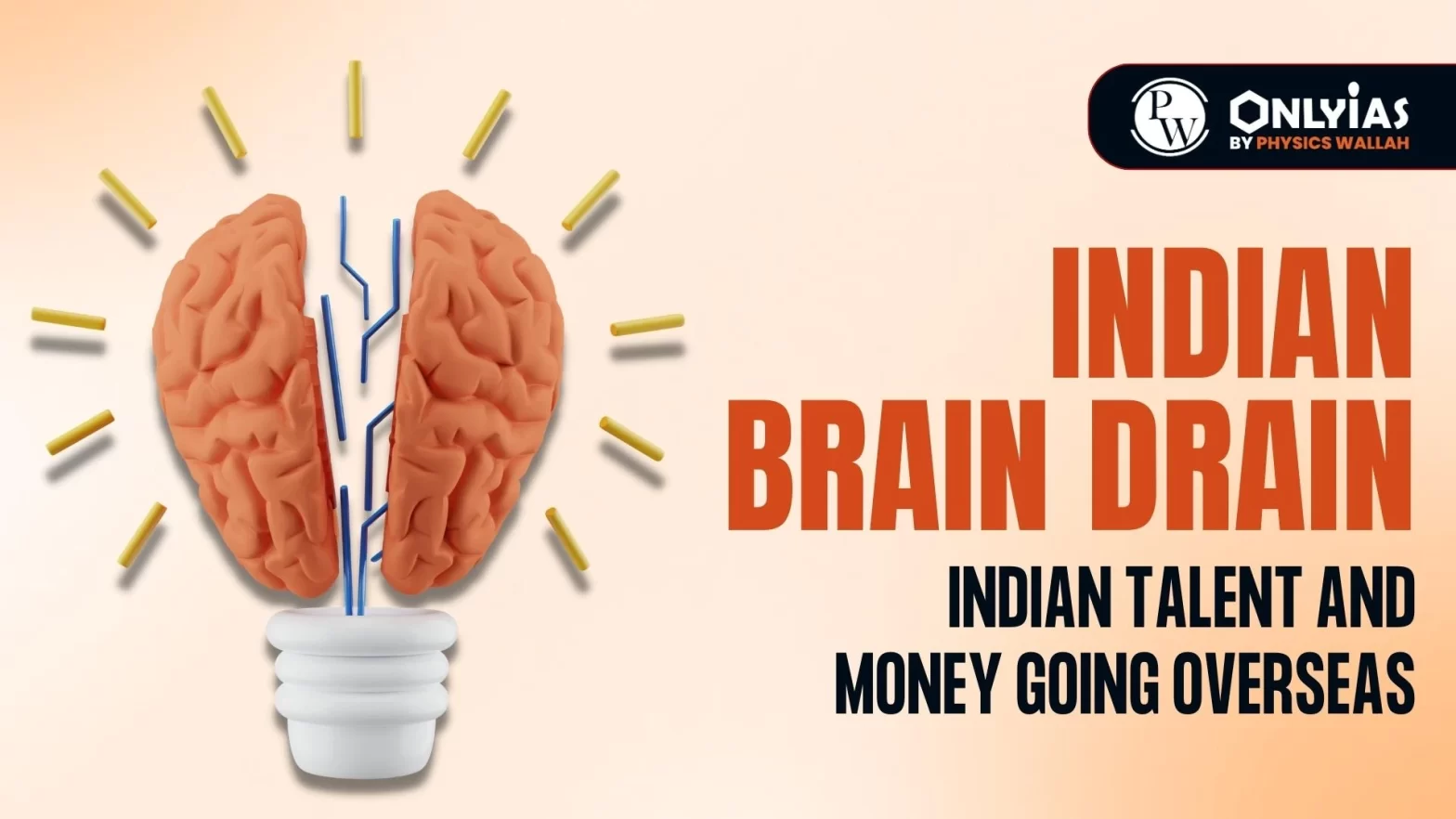Context:
| Relevancy for Prelims: Indian Brain Drain, Global Initiative for Academic Network (GIAN) and National Education Policy 2020.
Relevancy for Mains: Indian Brain Drain, Concerns with Brain Drain and measures that need to be taken to counter this challenge. |
What is Brain Drain?
- As per Merriam-Webster, brain drain is “the departure of educated or professional people from one country, economic sector, or field for another usually for better pay or living conditions.”
- India witnessed the sharpest increase in people migrating overseas, at nearly 10 million between 2000 and 2020, according to the “International Migration 2020 Highlights” report.
Know more about India’s Brain Drain Challenge: Causes, Impacts, and Solutions in detail here.
What are the key reasons for the Indian Brain Drain?
- Lack Of Opportunity in Higher Education: In comparison to applications, there are very few available seats in competitive examinations like NEET examination, UPSC, admission to IITs, etc.
- Employment Opportunities and Higher Pay: Salaries in India for the same role stand in contrast with salaries in international destinations.
- Taxation Policy: The high rate of tax and complexity of the regime is also a reason for migration.
- Visa Programme: The work visa programs provided to international students and graduates like Post-study visas, the H-1B in the US, have attracted Indians.
- Standard of Living: First-world countries have better living standards, higher salaries, and access to advanced technologies to enhance future growth.
What are the implications of Indian Brain Drain?
- Loss of Human Capital: It leads to a shortage of highly skilled professionals, making it challenging to develop critical sectors such as healthcare, education, and technology.
- Reduction in Innovation, Research, and Development may result from Indian brain drain.
- Economic Disparity: It can also worsen economic inequality because most highly skilled and educated individuals can afford to emigrate.
- Foreign Exchange: By 2024, Indian students studying abroad are estimated to increase to 1.8 million and student spending to hit 80 billion USD (MEA).
- Economic Development: Weakening the nation’s economy is the possibility of Indian brain drain causing a general decline in productivity and innovation.
What Initiatives has the Government Taken to Address Indian Brain Drain?
- Three-Pronged Strategy for Arresting ‘Indian Brain Drain’
- Creating research infrastructure, environment for scientific pursuit, and academic/ research institutions
- Creation of Opportunities for overseas scientists of Indian origin
- New Opportunities for Postdoctoral Research
- Establishment of Research Parks at IITs- and IISc to augment the research ecosystem
- Global Initiative for Academic Network (GIAN) to tap the talent pool of scientists and entrepreneurs from abroad, including those of Indian origin, to augment the country’s existing academic resources
- Visiting Advanced Joint Research (VAJRA) Faculty Scheme of SERB provides a platform for overseas scientists including Non-Resident Indians to undertake collaborative research in Indian Institutions and Universities for a finite period of time
- National Education Policy 2020 allows the top 100 international institutes to set up campuses in India.
|
Way Forward
- Knowledge Economy: India needs to invest in research and development, innovation, and education to retain talent in India.
- Quality Higher Education and Skill Development: India has a large and young population, India must invest in high-quality education and skill development.
- Foreign Institutes in India: Allowing foreign higher education institutions to set up campuses is a way to provide Indian students with access to world-class education.
- Research & Development and Innovation: India must invest more to become an innovation powerhouse, which will help to create high-paying jobs and attract and retain talent.
- Higher Wages and Employment Opportunities: There is a need to offer competitive and better employment opportunities to skilled workers in India.
- Favorable Taxation Policy: The government can reduce the tax burden on startups and small businesses, and can also provide tax breaks for those investing in research and development.
Conclusion:
The government needs to focus on improving the overall quality of life by investing in infrastructure, improving public services, and reducing corruption. By making India a more attractive place to live and work, the government can help to reduce Indian brain drain and attract talent from around the world.
![]() 1 Nov 2023
1 Nov 2023
